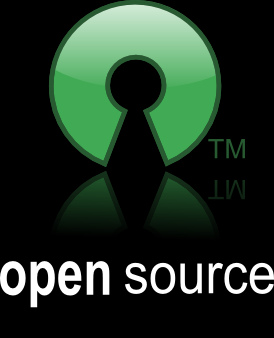Some software really is free. There’s no need to buy it, it works great and sometimes even better than that which you pay for. OpenOffice is one example of such software that completely replaces the expensive MS Office suite. The cost savings can be so great, that Tata Consultancy Services (TCS) recently replaced MS Office on every single computer with OpenOffice right over the weekend!
Of course, US Corporations hate free software with a vengeance. Microsoft’s CEO Steve Ballmer for example, has called Linux “a cancer”. Free software (also called Open Source when the source code is available) has a habit of nudging out expensive software solutions and improving faster than any paid software. However, it’s only recently that US corporations using their clout have tried to make using Open Source software a crime.

Many governments – especially poor ones – have tried to save piles of money by encouraging the use of Open Source software in administration. Such governments include India, Brazil and Indonesia. Alarmed by this, the companies with money have been encouraging the US government to place these countries on a blacklist for “failing to build respect for intellectual property rights!”
Wha? Did I miss something? It’s not a secret that many developing countries have very high rates of piracy which companies like Microsoft claim is theft. So when a government decides to prevent the so called theft and instead uses software that is free instead, corporations suddenly cry foul? It’s obvious to the meanest intelligence, that what is expected of a sovereign government is not to clamp down on piracy, but rather to continue to unnecessarily shovel money into the coffers of already fat corporations!
For a country like India, the substantial savings from using Open Source software can be channeled into improving the lot of impoverished people or improving the government’s fiscal deficit. This is unacceptable according to the moneyed powers who want that cash to flow to them instead.
This issue merely highlights the stranglehold that corporations have on the US government, the effects of which are felt halfway across the world in India. If they’re successful, we will be included on the US’s special 301 blacklist which might adversely affect our trade negotiating power on other issues.
Personally, I don’t think that the recommendations will be accepted by the US trade department (perhaps I’m being overly optimistic?), but the mere fact that private interests with money can dictate the direction of governmental procedures on such a large and brazen scale is scary.
Given all this, I’m glad I’ve slowly been shifting away from all paid software. I now use Ubuntu (a Linux variant) exclusively as my Operating System, Google Docs instead of MS Office, WordPress as my blogging platform, and Pidgin as my Instant Messenger software. No longer do I have to shell out money and adhere to restrictions such as how many times I can reinstall my OS and I don’t have to “activate” or “crack” my software anymore. Welcome to the world of free software!
This post has left me very nearly speechless. If I weren’t afraid of waking up the kids, I’d start ranting right now. What can one say to this nonsense? I’d like to figure out how to move to openoffice etc. myself.
I wish I were programming savvy to move to opensource software but alas, I lack the skills…
I think poor countries are doing the right thing by moving to free software to save money…It’s legal, so why shouldn’t they? If I were a paid software producer, I too would probably be pissed like Microsoft but since I’m not, all I want to say is “go for it!”
Me – Open source software like Openoffice is as technical as MS Office. So if you use one, you can use the other. If you’re interested, here’s the link to download and install OpenOffice: http://www.openoffice.org/ . Try it if you’re feeling happy with life :)
The roof is falling!
Imagine, an industry group formed to protect intellectual property, whose main purpose is to fight against piracy, also has a few lines in their report on about perceived unfair trading practices.
It’s shocking! Shocking! These companies want to be able to sell more software on an open market. They also want to do away with other import quotas, including local film quotas in Indonesia – but I don’t hear anybody boycotting Avatar (FYI, your truly has yet to see that cinematic marvel. I’m waiting for the book).
Well, kids, that’s what capitalism is. And yes, even companies that deal in FOSS also make money. You have to pay your engineers, you know (Red Hat, Canonical). Oh – wait, I don’t think Sun did a very good job of that, though.
Excuse me while I shut down Firefox & reopen this in IE.
Me – See I don’t mind them trying to promote their own products – but not in a government report and certainly not by turning it into a diplomatic issue – which is what the special 301 report is all about.
Second, it’s not an unfair trade practice for a government to advise it’s own departments to save money by using legitimate and free software. There’s an opportunity cost to buying proprietary software and for a country like India, that cost is pretty high. The same money can be used to improve the lot of people here who badly need it.
In short, this is an example of a corporation overstepping its bounds and trying to bulldoze governments into not doing what’s best for their own citizens.